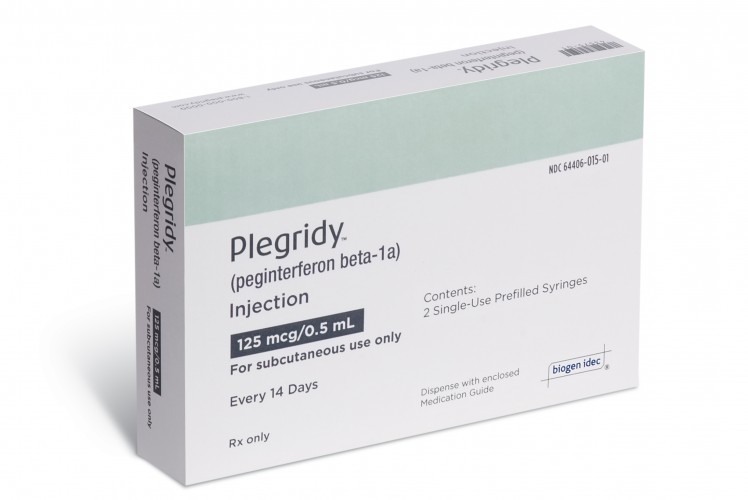
Interferons (IFNs) are secreted glycoproteins that are produced by cells in response to virus infection and other stimuli and induce an antiviral state in cells bearing IFN receptors. In this way, IFNs restrict virus replication and spread before an adaptive immune response is developed. Viruses are very sensitive to the effects of IFNs.
Interferons are part of your body’s natural defenses. They tell your immune system that germs or cancer cells are in your body. And they trigger killer immune cells to fight those invaders. Interferons got their name because they “interfere” with viruses and keep them from multiplying.
There are three types of interferons (IFN), alpha, beta and gamma. IFN-alpha is produced in the leukocytes infected with virus, while IFN-beta is from fibroblasts infected with virus. IFN-gamma is induced by the stimulation of sensitized lymphocytes with antigen or non-sensitized lymphocytes with mitogens.
Interferons being able to prevent virus/coronavirus replication and spread is a well know fact. Pathologists, virologists, and government health officials know that interferons are viruses/coronaviruses Achilles’ heel.
Interferon treatment has already been used worldwide to successfully treat a number of diseases including to treat various cancers (e.g., leukemia, melanoma, AIDS-related Kaposi’s sarcoma). Interferon treatment have already been approved for hepatitis B and C treatment, and for the treatment of multiple sclerosis. Research by the Department of Pathology, University of Texas Medical Branch, has demonstrated that interferon treatment is also a viable treatment for COVID-19.
“Our data clearly demonstrate that SARS-CoV-2 is highly sensitive to both IFN-α and IFN-β treatment in cultured cells, which is comparable to the IFN-sensitive VSV. Our discovery reveals a weakness of the new coronavirus, which may be informative to antiviral development. The experiment was performed in the IFN-α/β gene-defective Vero cells (Desmyter et al., 1968). It is plausible that in IFN-competent cells the efficacy of exogenous IFN-β treatment against SARS-CoV-2 infection is more potent, as IFN-β upregulates other subtypes of Type I IFN expression and augments the IFN-mediated antiviral response (Honda et al., 2006). It is also important to evaluate the antiviral effects of IFNs further in pathobiologically relevant human cell types. Our data may provide an explanation, at least in part, to the observation that approximately 80% of patients actually develop mild symptoms and recover (Wu and McGoogan, 2020). It is possible that many of them are able to mount IFN-α/β-mediated innate immune response upon SARS-CoV-2 infection, which helps to limit virus infection/dissemination at an early stage of disease. At a later stage, the adaptive immune response (antibody etc.) may eventually help patients recover from the COVID-19 disease.”
“we have demonstrated that SARS-CoV-2 replication is inhibited by IFN-α and IFN-β at concentrations that are clinically achievable in patients. Recombinant IFN-αs, Roferon-A and Intron-A, which have been approved for hepatitis B and C treatment, can reach concentrations of up to 330 IU/ml and 204 IU/ml, respectively, in serum (Strayer et al., 2014). Recombinant IFN-β drugs, Betaferon and Rebif, which have been approved for the treatment of multiple sclerosis, can reach concentrations of 40 IU/ml and 4.1 IU/ml, respectively, in serum (Strayer et al., 2014). Therefore, some of these drugs may have the potential to be repurposed for the treatment of COVID-19 either alone or in combination with other antiviral therapies.”
Research Paper published by Department of Pathology, University of Texas Medical Branch, Galveston, TX, USA and Institute for Human Infections and Immunity, University of Texas Medical Branch, Galveston, TX, USA
“As a group, interferon beta (IFN-β) therapies have a proven record of long-term safety, as well,” Dr. Thrower
FDA approved relapsing multiple sclerosis (RMS) drug Plegridy contains interferon-beta (IFN-β), a cytokine in the interferon family that balances the expression of pro and anti-inflammatory agents in the brain.
The drug binds to the type I interferon receptor on the surface of cells, resulting in a number of intracellular events. This leads to the regulation of interferon-responsive gene expression.
The US Food and Drug Administration (FDA) granted approval for Plegridy for the treatment of people with RMS in August 2014. Biogen Idec also received marketing authorisation approval for Plegridy from the European Commission (EC) for the treatment of adults with relapsing-remitting multiple sclerosis (RRMS) in Europe, in July 2014.
Coincidentally, interferon treatment has already been used worldwide to treat Kaposi’s sarcoma which is caused by a virus called the human herpesvirus 8 (HHV-8). SARS-CoV-2 genome contains a protein that is exclusively/only found in SARS-CoV-2 genome and not in SARS-CoV or any other human coronavirus. SARS-CoV-2 genome contains the virus protein ORF10.
“In a recent study comparison of the proteins encoded by SARS-CoV-2 with the proteins of SARS-CoV revealed the presence of novel ORF8 and ORF10 proteins in SARS-CoV-2. …. ORF10 is the only protein that is not present in other human coronaviruses” Genes of SARS-CoV-2 and emerging variants
Severe acute respiratory syndrome coronavirus 2 isolate Wuhan-Hu-1, complete genome
 RSS Feed
RSS Feed















 September 8th, 2021
September 8th, 2021  Awake Goy
Awake Goy 
 Posted in
Posted in  Tags:
Tags: 













